This under-the-radar cozy RPG makes me happy
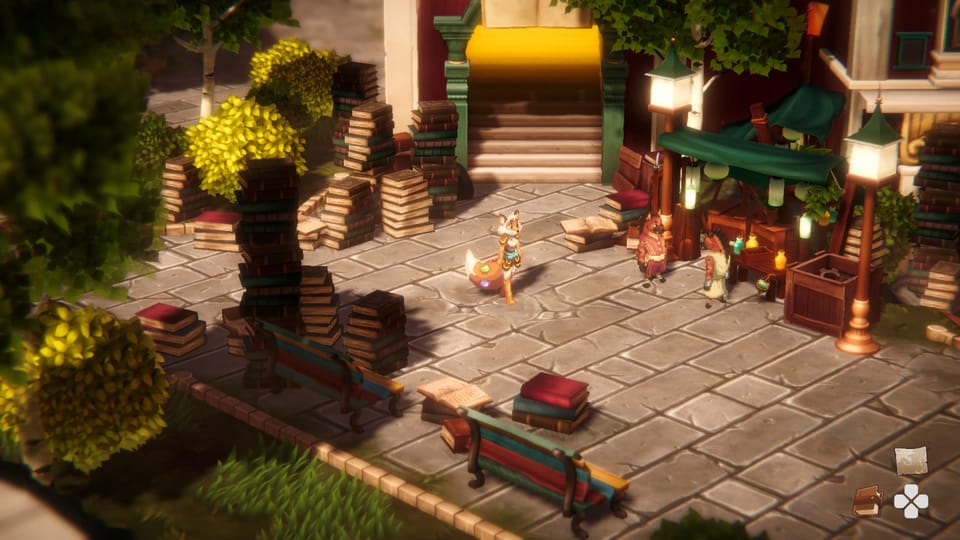
Terra Memoria makes me happy.
This cozy little RPG from French publisher Dear Villagers (previously responsible for standouts like The Forgotten City, which I loved) and developer La Moutarde is like a tight hug. It's a warm mug of hot chocolate while snow drifts outside. It's your favourite album at the end of a tough day.
"We wanted to make a chill adventure that would bridge the gap between casual gamers and hardcore JRPG fans," said game director Francois Bertrand in a Reddit AMA, "as well as give people who are not particularly JRPG fans (yet, eh eh) a way to discover this amazing genre." From Animal Crossing to Stardew Valley, and a million indie games in between, cozy games have found a huge audience among gamers still dealing with the trauma of a world dealing with increasing political and militaristic strife and the fallout of a catastrophic pandemic. It's never felt better to fall into gaming experiences that help us feel safe.
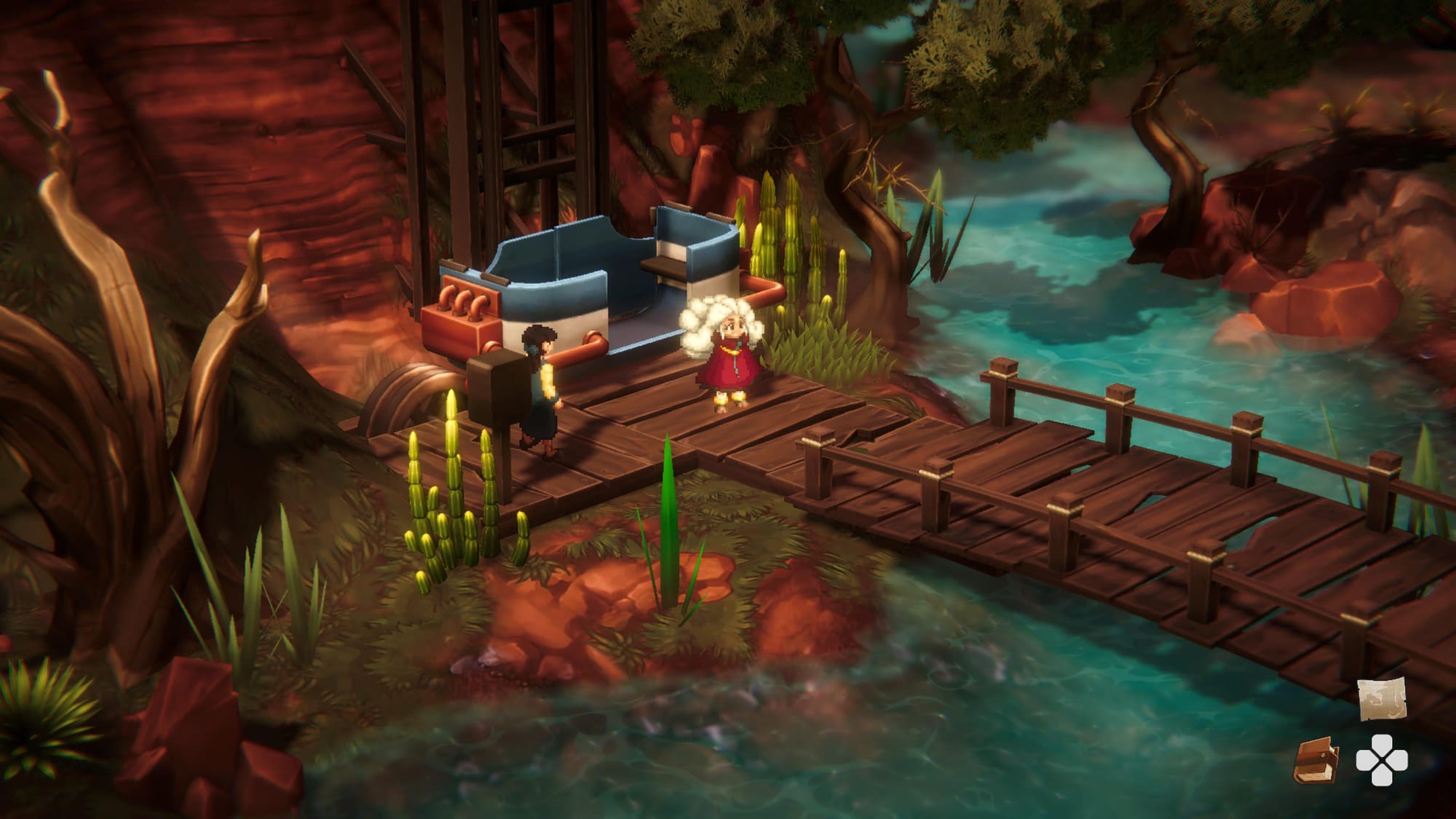
Several hours in and roughly 60% of the way through the story, I'm finding myself drawn to an experience that's the polar opposite of my recent playthrough of Elden Ring's Shadow of the Erdtree DLC. In need of a palate cleanser after that gruelling experience, many times longer than the entirety of Terra Memoria, I'm reminded that one of gaming's biggest strengths is providing experiences where we can escape the grind of daily life for something that brings peace and relaxation.
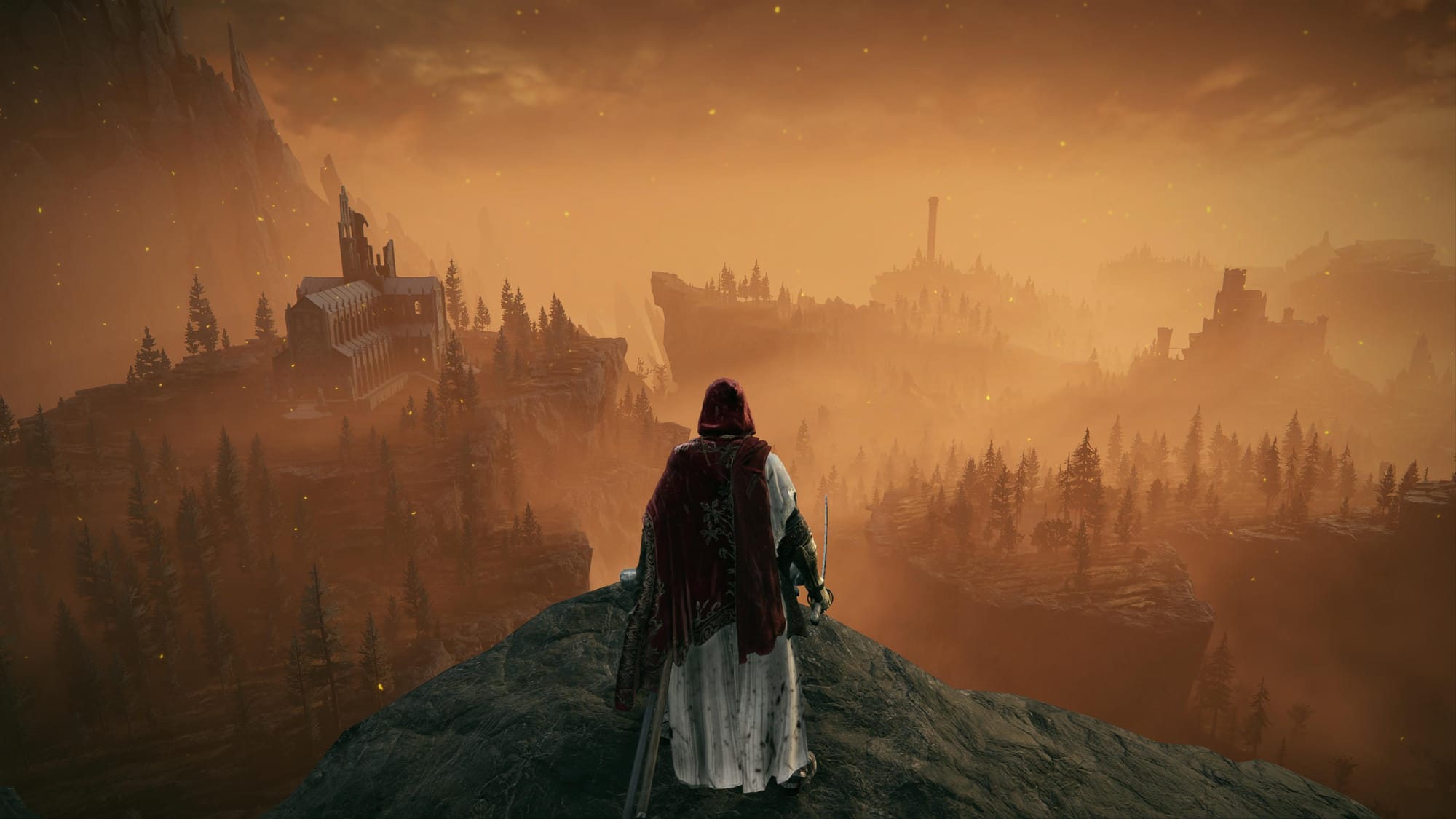
Terra Memoria is an audiovisual treat. Taking the HD-2D style popularized by Square Enix in games like Octopath Traveler, which is itself an evolution of the visual style featured in Breath of Fire III and IV–cited as direct visual influences by Bertrand)–Terra Memoria's locations are vibrant and unique, blending windswept fields with riverside forests, dank mines filled with ancient technology and wild west-style frontier towns, snow-covered hot springs with bustling cities. Where many retro RPGs feature different regions that just feel like reskins, each of Terra Memoria's cities, dungeons (which, non-traditionally, double as the game's overworld between cities), and special areas feel well defined and I'm constantly looking forward to discovering what's coming next. The pixel art is stunning, and clever visual design masks what's otherwise a fairly tech-light Unity game.
Notably, the music made my wife, who usually gets annoyed by repetitive game soundtracks, sit up from her cross stitching and comment on how much she was enjoying the melodies and instrumentation, which range broadly in style. It's a feather in the cap for the small studio, and does wonders for giving depth to Terra Memoria's already memorable and gorgeous world.
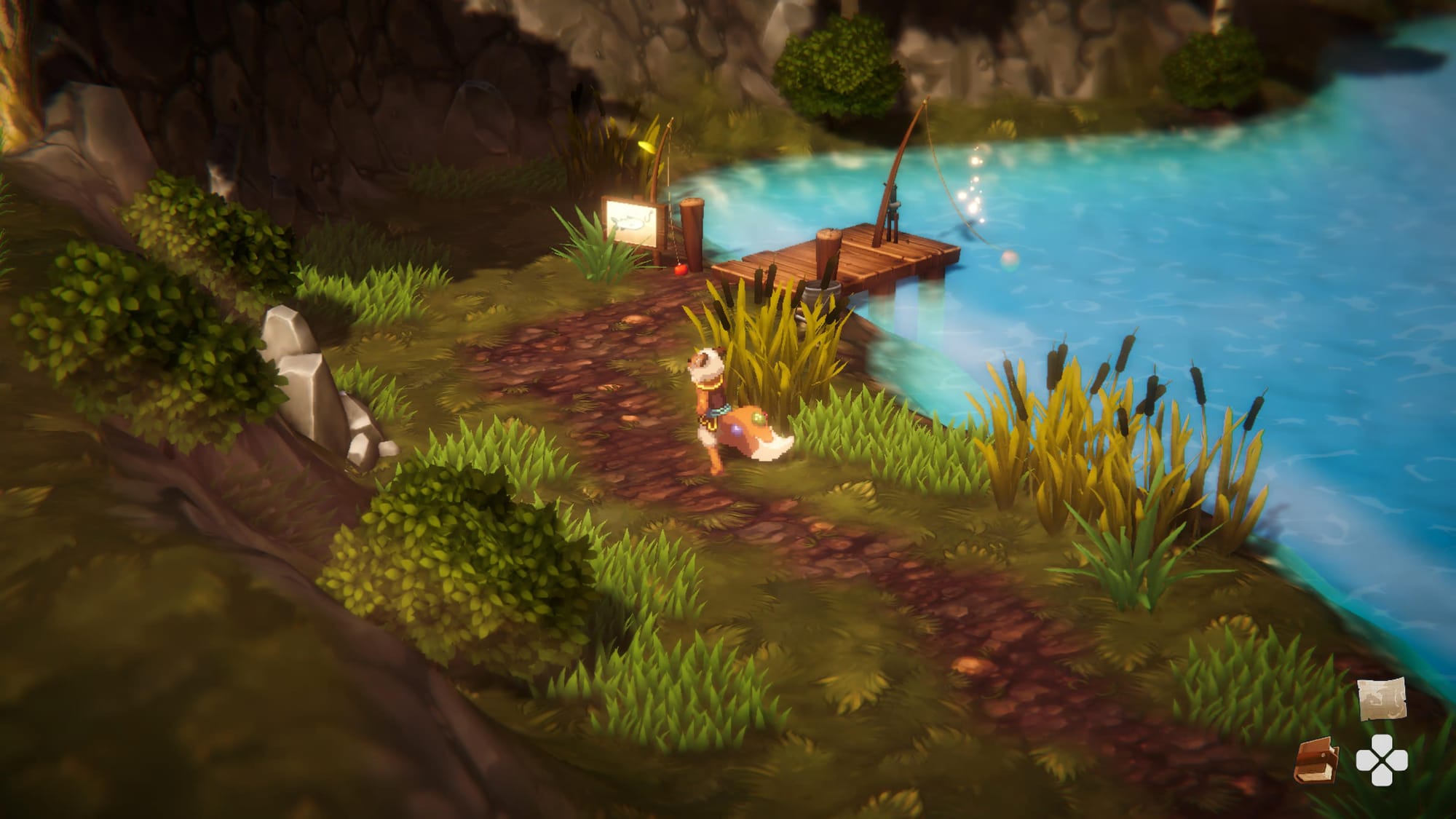
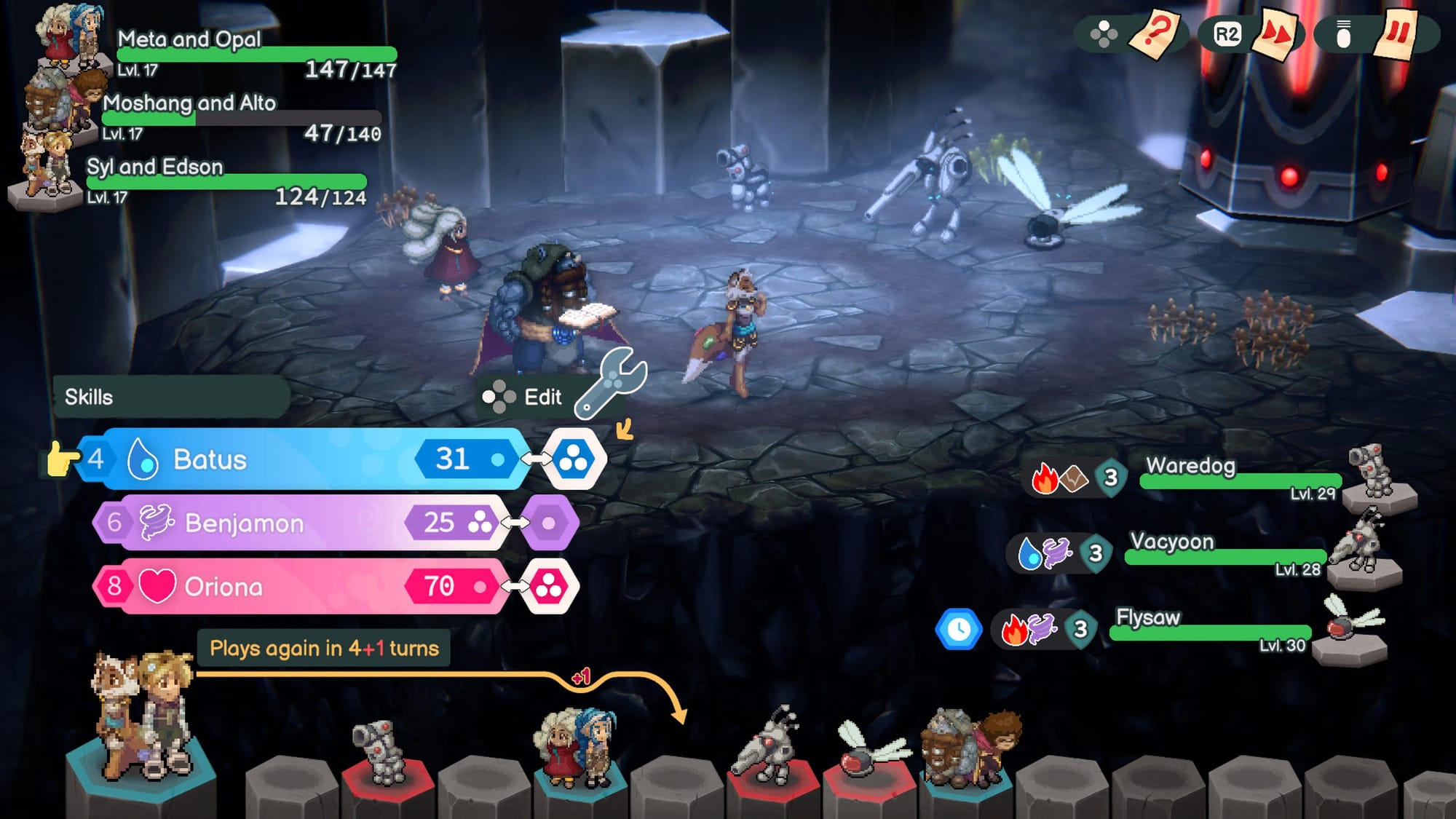
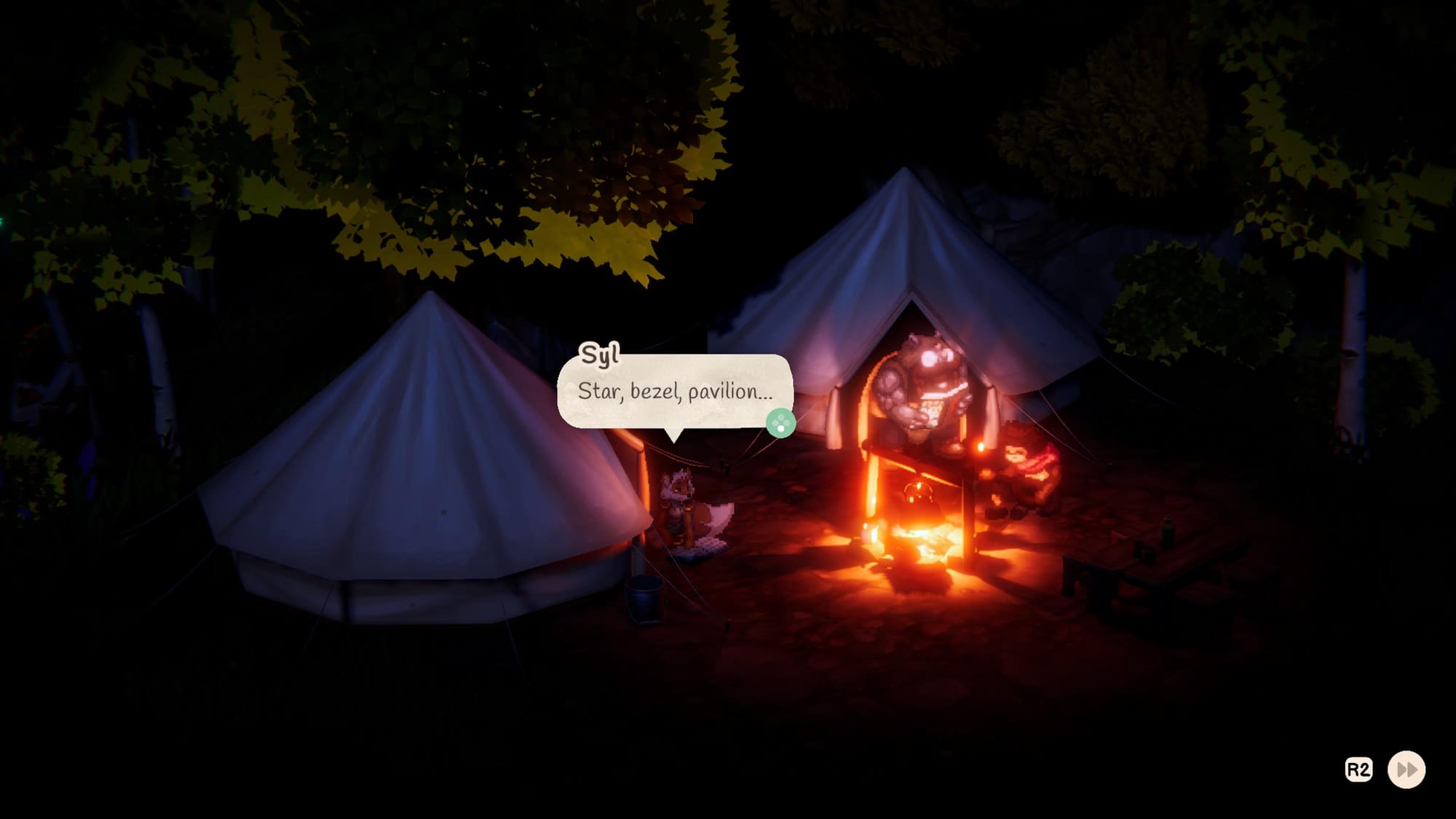
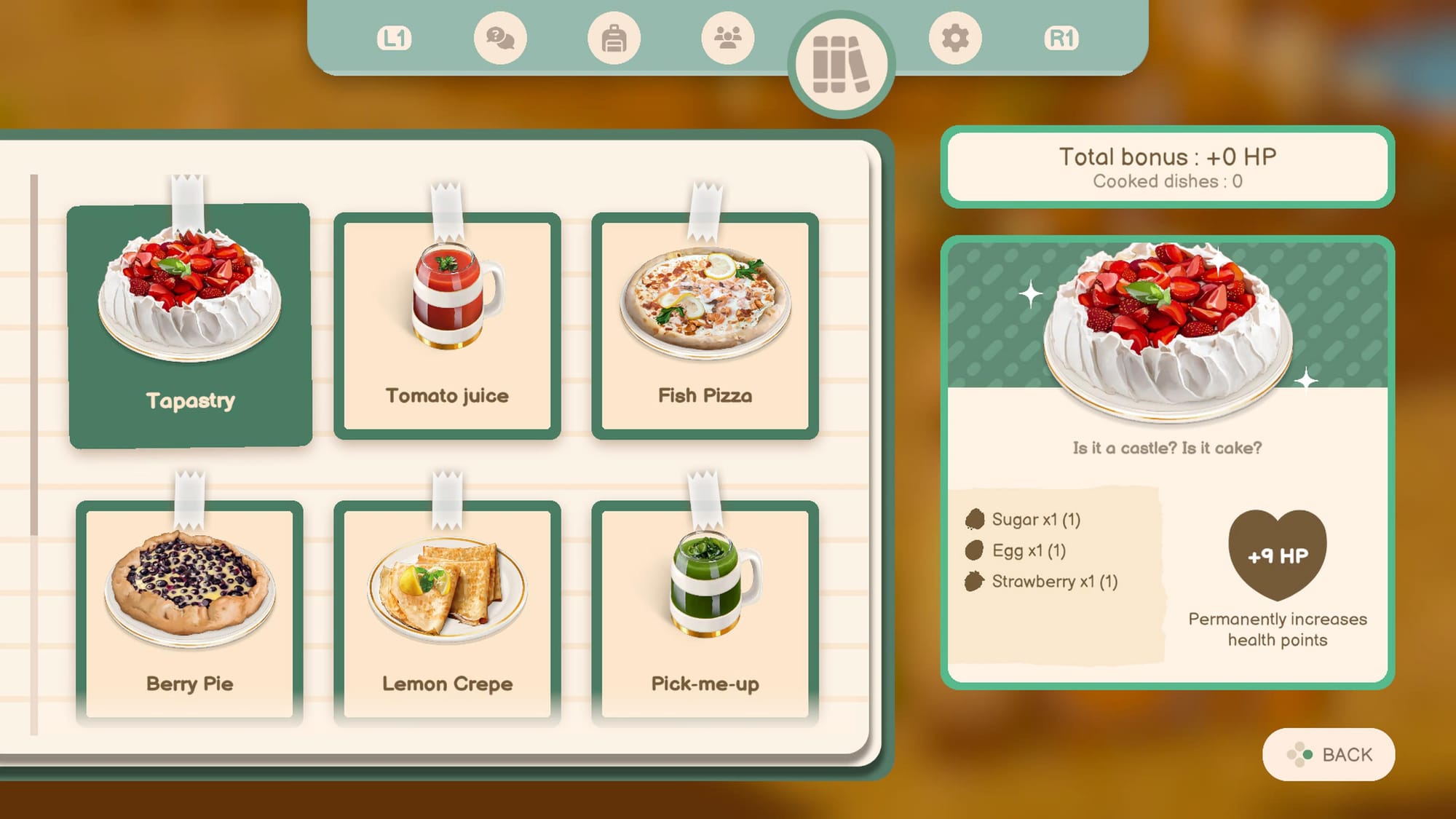
Immediately, Terra Memoria's classic influences are clear. Its character designs, 3/4 perspective in combat, and world-aesthetic call back to Breath of Fire's PlayStation era, its timeline-based battles and low-stakes opening are reminiscent of Grandia (though the director admitted to never having played Grandia, that game's impact on RPGs is enough, I think, for Terra Memoria to have gleaned some of its unique elements through osmosis, if not directly), and the effervescent personalities of its party would feel at home in Tales of Eternia. But while these influences are prominent, Terra Memoria never feels bound by them. Combat plays out far differently than Grandia due to Terra Memoria's unique decision to give the player access only to mages. Combat becomes a balance of sacrificing power for timing, or vice versa. Coupled with this, each combatant is paired randomly with a non-combat party member at the start of each battle, changing the way abilities work and encouraging the player to experiment depending on party makeup.
Stuffed with various RPG-favourite minigames, like cooking, crafting, and townbuilding, Terra Memoria's moment-to-moment gameplay won't surprise genre veterans, but it's also light enough to attract players unfamiliar with the genre. The standout is the aforementioned combat, which revolves around a turn-order timeline directly impacted by the abilities used by the player. Each combatant has access to a handful of elemental spells, some of which hit singular targets and others which spread their damage among every enemy, and the stronger the spell, the more turns it takes for the character to act again. With this general foundation, combat becomes a balance of utilizing the correct element to break the enemies's defences, Octopath Traveler-style, and juggling between quick, weaker spells that allow more attacks, and big haymakers that leave you unable to act for several turns. Bosses in particular offer a unique challenge, though several hours into the game, it becomes clear that strategy doesn't change much from battle-to-battle, leading to a same-y feel that might drag down a longer game.
While these sort of rough edges also rear their head in the localization, which could've used another copyedit, the writing itself is cute, and the characters's motivations are clear—if simple, at times. It's nice to explore a world that's not on the verge of collapse, and instilling the plot with personal stakes, rather than world-ending stakes, helps the player connect with characters whose desires are relatable and understandable because they mirror the things we're feeling about our own personal lives.
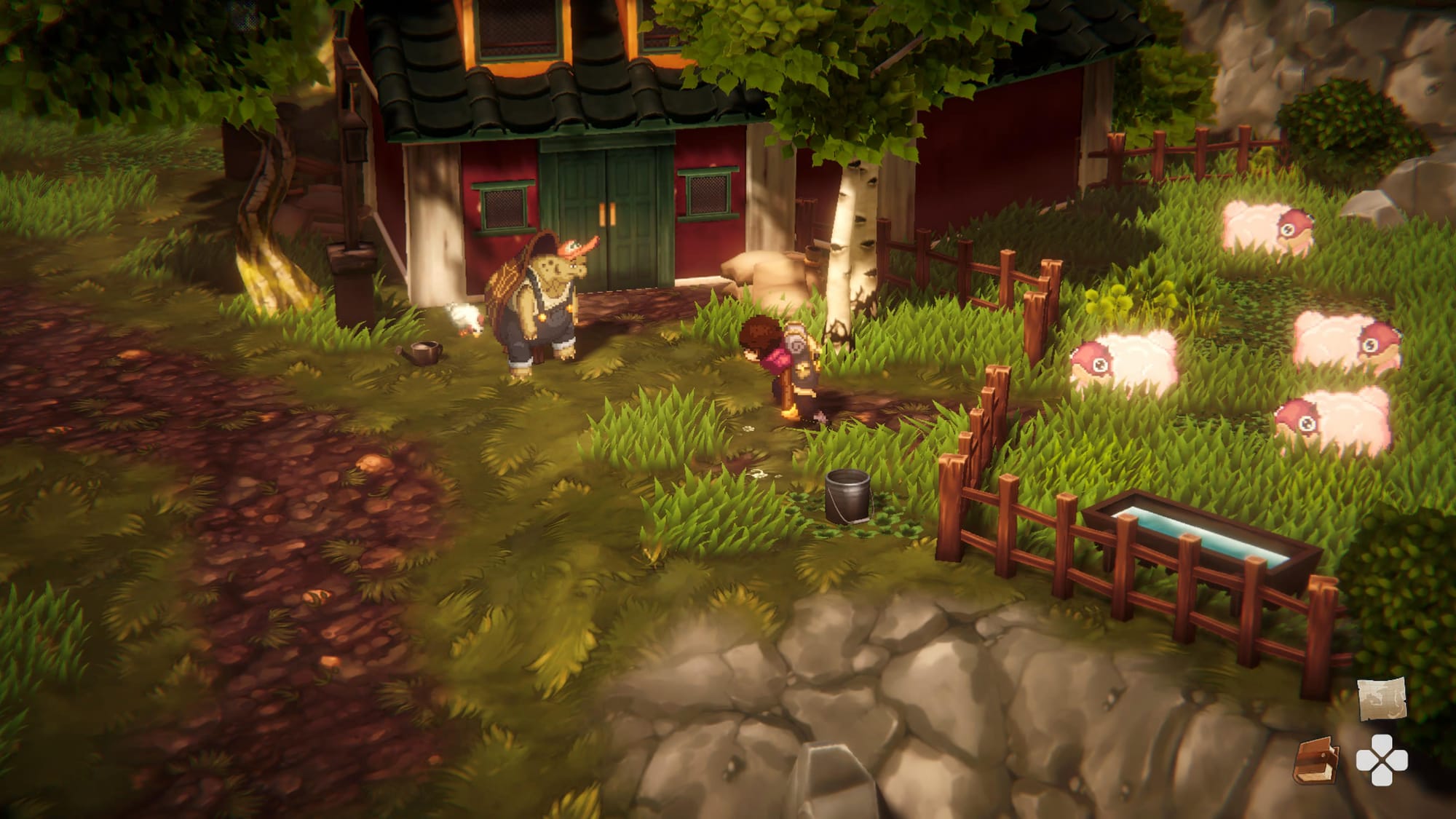
In the end, Terra Memoria's experimentation within the well-worn boundaries of obvious influences feels like a natural fit for a short, snappy indie RPG, even if it doesn't have the depth necessary to scale up into a full-sized RPG. At 10-15 hours long, Terra Memoria knows exactly how long to stay before tiring out its welcome, and its snappy pace takes the player through a whizz-bang story and beautiful locations at a speed that makes it tough to put down. After the 16-bit era, console RPGs exploded in size and length, but Terra Memoria is a good example of how the genre can also shine with focused and shorter experiences, too.
For just $20, Terra Memoria feels like a steal. It's a gorgeous melding of many classic RPGs, and brings a cozy tone and tenor to a genre often obsessed with melodrama. As new and improved game engines and design techniques open the RPG genre up to smaller studios, I'd love to see more experimentation with various tones and game lengths. Terra Memoria is a proof of concept that RPGs can take inspiration from the sprawling, dramatic classics of the past and still carve out something concise and unique. It makes me happy, and sometimes, often, that's all I need.
Terra Memoria is available now on Steam, PlayStation 5, Xbox, and Nintendo Switch.
Support
There are lots of ways to support Astrolabe and my other work. Check ‘em out!
Keep In Touch
Enjoy Astrolabe? Want more SFF and retro gaming goodies? You can find me on Twitter and my website.
Credits
Astrolabe banner photo by Shot by Cerqueira on Unsplash



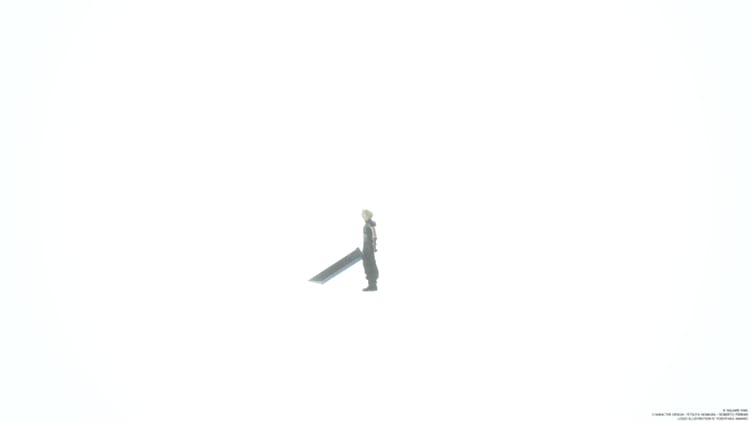

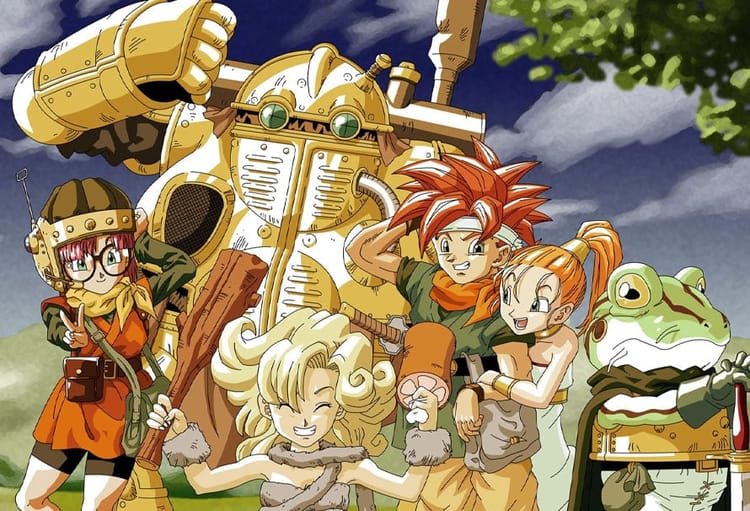
Member discussion